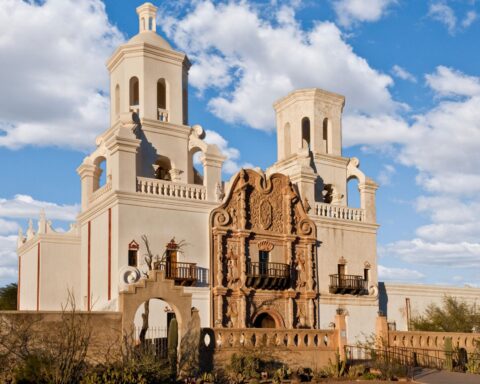American history is filled with some of the most interesting politics and intrigue. Despite being only 246 years old, the country has had some notable political scandals. Sadly, these incidents often undermine the integrity of our leaders.
The impact of political scandals affects not just the politicians themselves but society as a whole. A recent poll by Pew Research Center tells us that only one out of every ten Americans trust the Government to do what is right.
There are many factors for this, but witnessing the numerous scandals that our politicians have engaged in is arguably a major reason. In this article, we will go back a bit deeper into America’s history. We will look at three political episodes that created high drama, starting from the 1920s and going back to the late 1700s.
1. The Teapot Dome Scandal
What could be more American than a scandal involving oil? The term Teapot Dome refers to one of three naval oil reserves that played a role in the switch from coal to oil-based fuel for U.S. Navy ships.
This scandal was notable as it involved the Secretary of the Interior, who at the time was Albert B. Fall. Instead of letting the oil reserves be bid for in a fair and competitive manner, Fall accepted bribes from executives of major oil companies. These included Harry F. Sinclair of Mammoth Oil and Edward L. Doheny of Pan American Petroleum.
Fall then handed over to these oil companies the drilling and extracting rights they were after. Doheny paid $100,000 for the Elk Hills naval oil reserve. Sinclair paid Fall even more, at $300,000, for the Teapot Dome oil reserve in Wyoming. When adjusted for inflation, the bribes total over $7,264,000 today.
Fall only got away with it for two years. In 1922, the Wall Street Journal released a series of investigative reports. These reports detailed the suspicious nature of how the oil reserves were leased out.
The allegations shocked the nation due to the fact that high-ranking officials were involved in what appeared to be a case of blatant corruption.
President Harding ended up having to establish a special commission, which confirmed the allegations of bribery. Albert B. Fall would become the first cabinet member to be convicted of a felony while in office.
2. The Ostend Manifesto Controversy

This was a controversy that would have a number of implications for America’s foreign policy and ambitions of expansionism. The Ostend Manifesto was made in 1854. It was a document that advocated for the acquisition of Cuba, which was then owned by Spain.
Nineteenth-century America was a time when the idea of westward expansionism was on the minds of the people. The Caribbean island of Cuba had vast agricultural potential and would bring many strategic and economic advantages if acquired.
The mid-1800s wasn’t the first time that Cuba was an attractive target for America. Even in 1803, U.S. President Jefferson declared that the country would be an “Interesting addition” to the system of states.
As history goes, American diplomats Pierre Soulé, James Buchanan, and James Mason were called upon to create a joint action proposal. The purpose was to raise the topic of the purchase of Cuba once more.
Unfortunately for Pierce, the Ostend Manifesto also included the notion that if Cuba couldn’t be bought, it should be taken by force.
The Ostend Manifesto embarrassed President Pierce after its contents were leaked by the New York Herald. What followed was an international scandal as it appeared that the American President didn’t mind waging war against Spain if they didn’t get Cuba.
Road to the Civil War notes that diplomats from Madrid, Paris, and London expressed their shock at what America was conspiring to do. Eventually, the Secretary of State, William L. Marcy, disavowed the document. The scandal drove a deep wedge between the North and the South. Historians believe that Cuba would have been an ideal place to extend slavery for those still in favor of the practice.
3. The XYZ Affair
Perhaps the most interesting scandal involved the tensions between the United States and France. Named the “XYZ” affair, it was a significant diplomatic incident that happened between 1797 and 1798.
France, at the time, was right in the middle of its revolution. The U.S. was also in the early stages of establishing itself as a new, independent nation.
France and Great Britain were having tensions of their own, and when their conflict escalated, France began to capture American ships that were trading with Britain.
Unlike the previous episodes mentioned in this article, America’s only fault appeared to be its neutral stance to the British – French conflict.
America had chosen no sides in the conflict and was trying to remain neutral, which France didn’t like. Particularly, they didn’t like that America continued to trade with Britain. President John Adams then sent the diplomats, Charles Cotesworth Pinckney, John Marshall, and Elbridge Gerry to France.
Things took an unpleasant turn when instead of meeting with the French Foreign Minister, Charles Maurice de Talleyrand, they were intercepted by intermediaries. These intermediaries were referred to as X, Y, and Z.
The American diplomats were asked for bribes and loans before any official negotiations or discussions could take place. The American diplomats were also told that President Adams ought to make an apology for critical remarks he had made about France.
When news of this reached home, the American public was outraged at the way France was trying to extort American diplomats. Cries for war reached a crescendo, and eventually, America and France had an odd “Quasi-War.”
Thankfully for everyone, France wasn’t too eager to escalate things. This was partly due to the internal situation of their country. In 1800, the Treaty of Mortefontaine was signed, which ended an unnecessary and pointless conflict.
Conclusion
America was founded on the principles of liberty and justice. Sadly, you can’t really wish away human nature by simply stating ideal principles to live by. Will politicians ever learn that corruption only rots a nation from within? Regardless, these incidents should help people in every country, not just America, to think well about the candidates they support.




